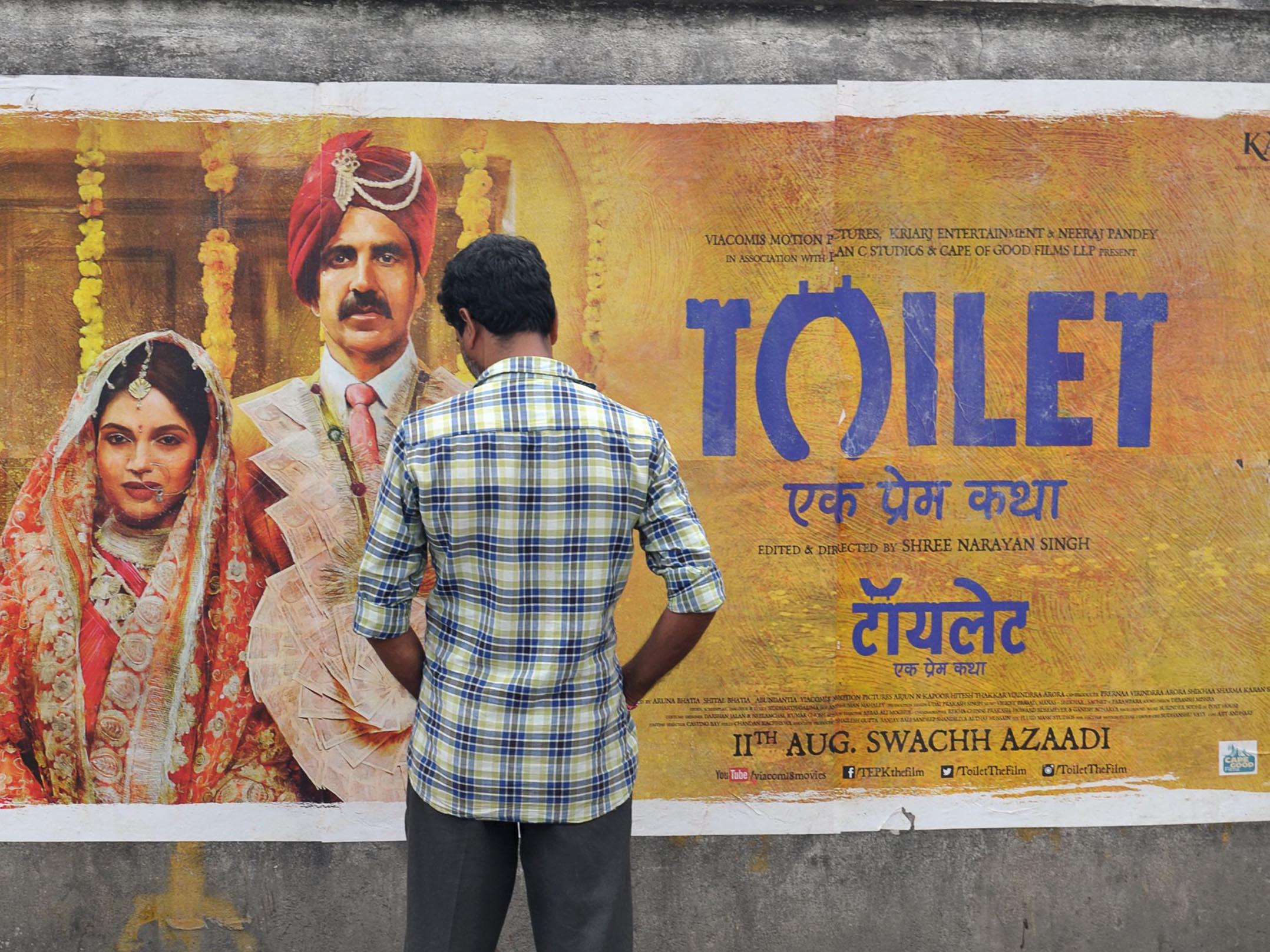Indian woman granted divorce because husband failed to provide family with indoor toilet
New Bollywood movie makes light of country's bathroom shortage but Rajasthan family court rules lack of facilities an act of cruelty

Your support helps us to tell the story
From reproductive rights to climate change to Big Tech, The Independent is on the ground when the story is developing. Whether it's investigating the financials of Elon Musk's pro-Trump PAC or producing our latest documentary, 'The A Word', which shines a light on the American women fighting for reproductive rights, we know how important it is to parse out the facts from the messaging.
At such a critical moment in US history, we need reporters on the ground. Your donation allows us to keep sending journalists to speak to both sides of the story.
The Independent is trusted by Americans across the entire political spectrum. And unlike many other quality news outlets, we choose not to lock Americans out of our reporting and analysis with paywalls. We believe quality journalism should be available to everyone, paid for by those who can afford it.
Your support makes all the difference.There's a newly released Bollywood film about a woman in India who left her husband for failing to provide a toilet. It's called, Toilet: Ek Prem Katha in Hindi, which translates to Toilet: A Love Story. It's based on the true story of Anita Narre, whose protest against defecating outside not only ultimately got her husband to build a toilet with government aid but inspired what the Indian press called a “toilet revolution” in her village in the state of Madhya Pradesh.
The film is described as a “satirical love story.”
But there isn't much humour in the premise it describes.
First-time visitors to India, having read of the country's technological prowess, are often surprised to learn that some 60 percent of the country's households lack access to toilets. In rural areas, but also in many urban enclaves, they will see men just doing it in the road or in fields visible from the roads in broad daylight. They are much less likely to see women going outside, not because they don't, but because modesty dictates that they do it in the dark of night, exposing them not only to inconvenience, indignity and disease but rape.
The situation is so bad that some years ago, public health advocates launched a “No toilet, No bride” campaign. Women were urged to refuse marriage unless the perspective husband furnished their home with a bathroom.
Now women have another possible incentive to offer husbands who can, but won't, provide proper toilets: divorce.
According to the Times of India, a family court judge in the state of Rajasthan has decided that failure to provide a bathroom is an act of cruelty sufficiently significant to be grounds for divorce.
The decision, described as probably a first by The Times, came in the case of a 24-year-old woman whose husband declined to provide facilities, saying they were unnecessary and unusual, noting that most women in their village were content to go in the open. This forced her to go to the bathroom and bathe at dusk, outside.
“We spend money on buying tobacco, liquor, and mobile phones, but are unwilling to construct toilets to protect the dignity of our family,” the court said, according to The Times.
“In villages, women have to wait until sunset to answer nature's call. This is not only physical cruelty but also outraging the modesty of a woman,” said the judge, identified by AFP as Rajendra Kumar Sharma.
The decision is especially significant because Indian courts grant divorces only in limited circumstances, such as physical abuse.
The long-standing problem, as the judge suggested, is no longer so much that people can't provide toilets. The government of Prime Minister Narendra Modi has reportedly succeeded in adding millions to the nation's inventory.
Getting some people to use them, especially in the villages, is also an issue. One of the reasons, as The Washington Post's Rama Lakshmi reported, is a caste system in which cleaning toilets is the job of the lowest on the rung and having a toilet in the home is, by association, considered unclean.
The government has run ads on billboards seeking to shame men into action. One of the ads pictured a child, as The Post reported, saying “Uncle, you wear a tie around your neck, shoes on your feet, but you still defecate in the open. What kind of progress is this?” Another said: “You may have a smartphone in your hand, but you still squat on train tracks.”
The Washington Post
Join our commenting forum
Join thought-provoking conversations, follow other Independent readers and see their replies
Comments